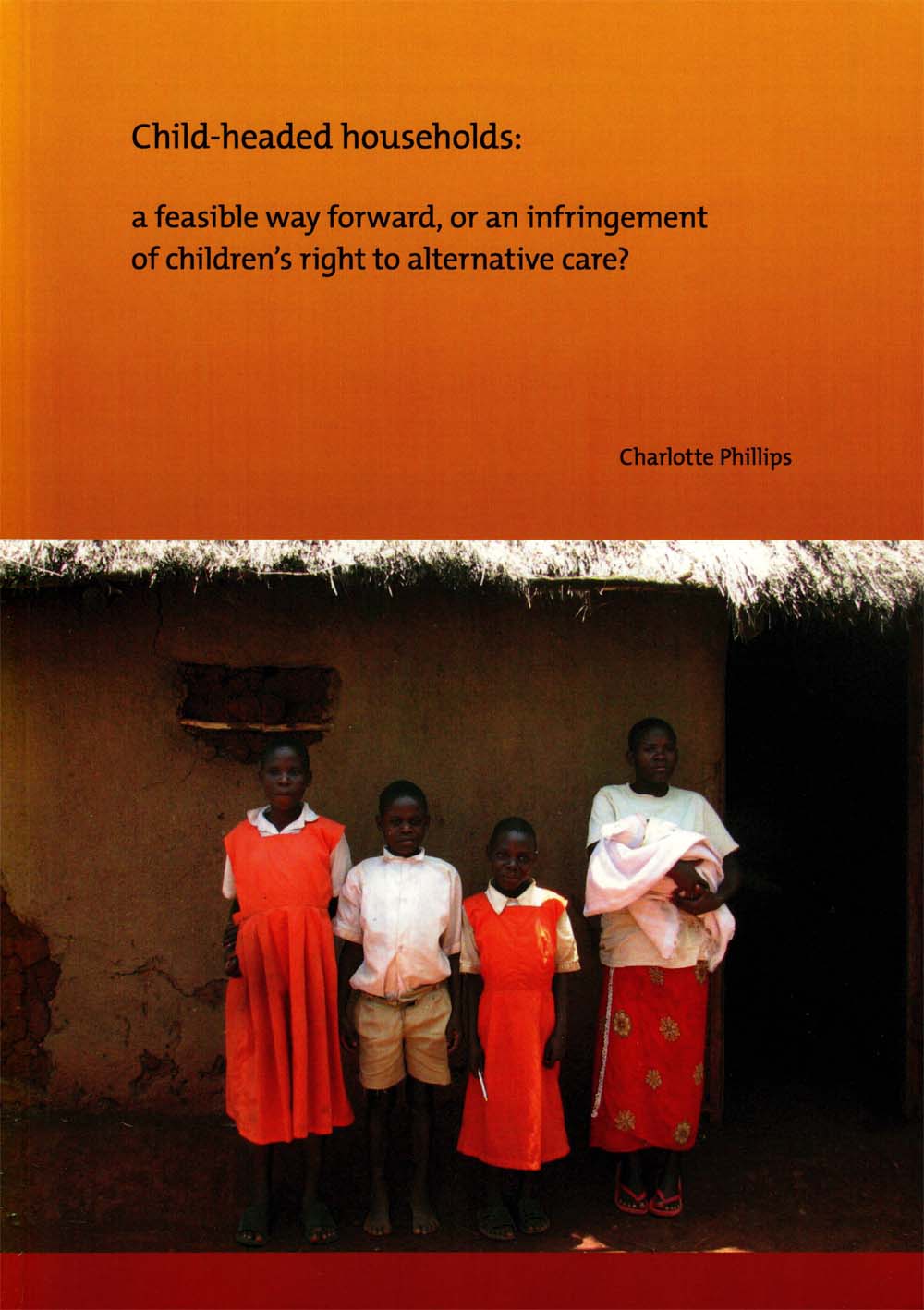In recent years the international community has paid closer attention to the phenomenon of child-headed households; these are households where a child has taken over the majority of responsibilities of the main caregiver. The primary factors leading to this situation are HIV/AIDS, poverty, conflict and the disintegration of the traditional extended family network. Although children who are deprived of adequate parental care have the right to alternative care, millions of children – including those living in child-headed households – have no recourse to this fundamental right.
This study presents an overview of alternative care as well as the factual situation of child-headed households in a selected group of focus countries in sub-Saharan Africa and further provides recommendations aimed at both legal and policymaking issues relating to the existing alternative care systems. This research seeks answers to the question: “What does the internationally recognised right to alternative care for children entail and is the recognition of child-headed households as a form of alternative care in line with the Convention on the Rights of the Child and other international standards which have been adopted as a measure to protect the inherent rights of children to protection, development, survival and participation?
Click on the image to read or download the book






Leave a Reply
Want to join the discussion?Feel free to contribute!